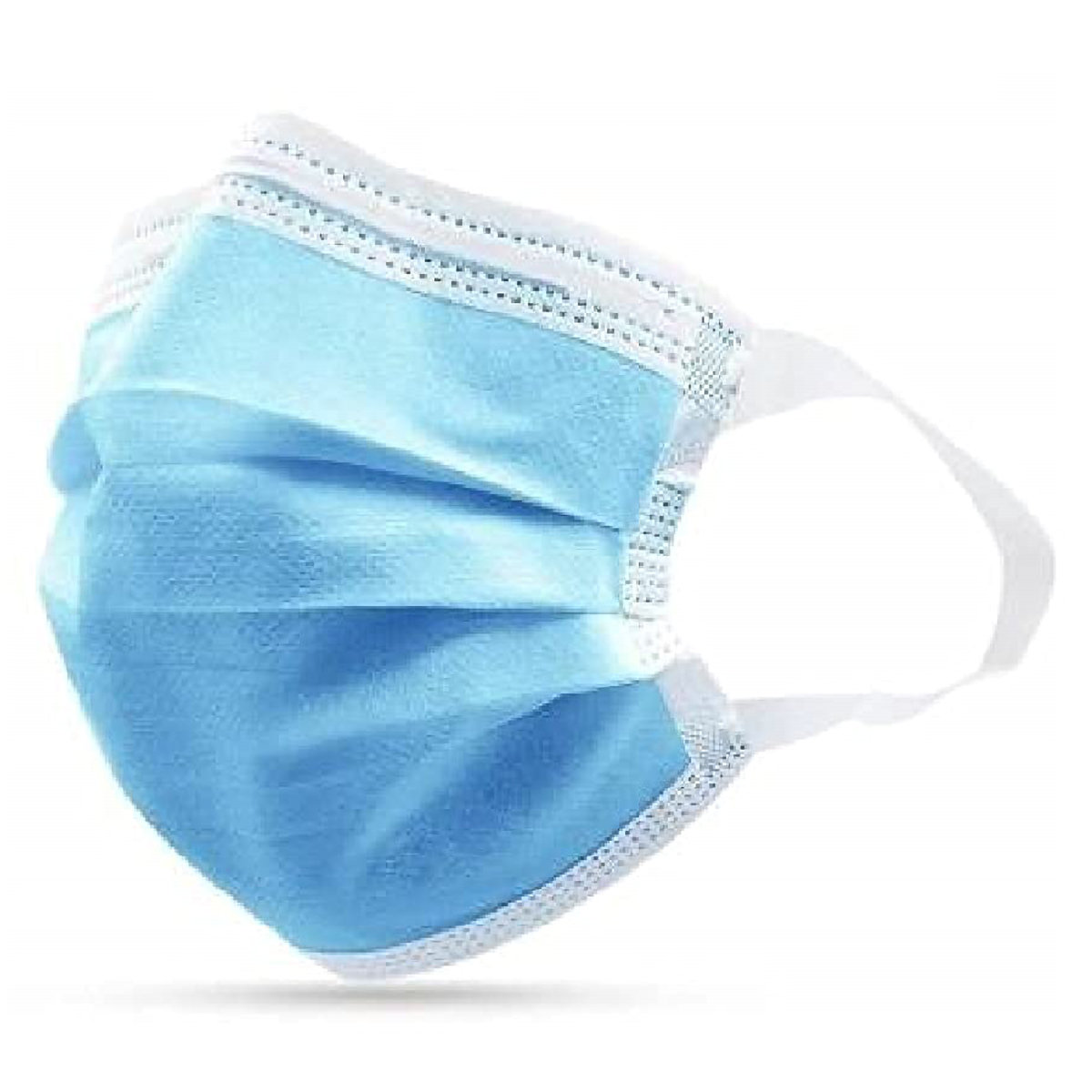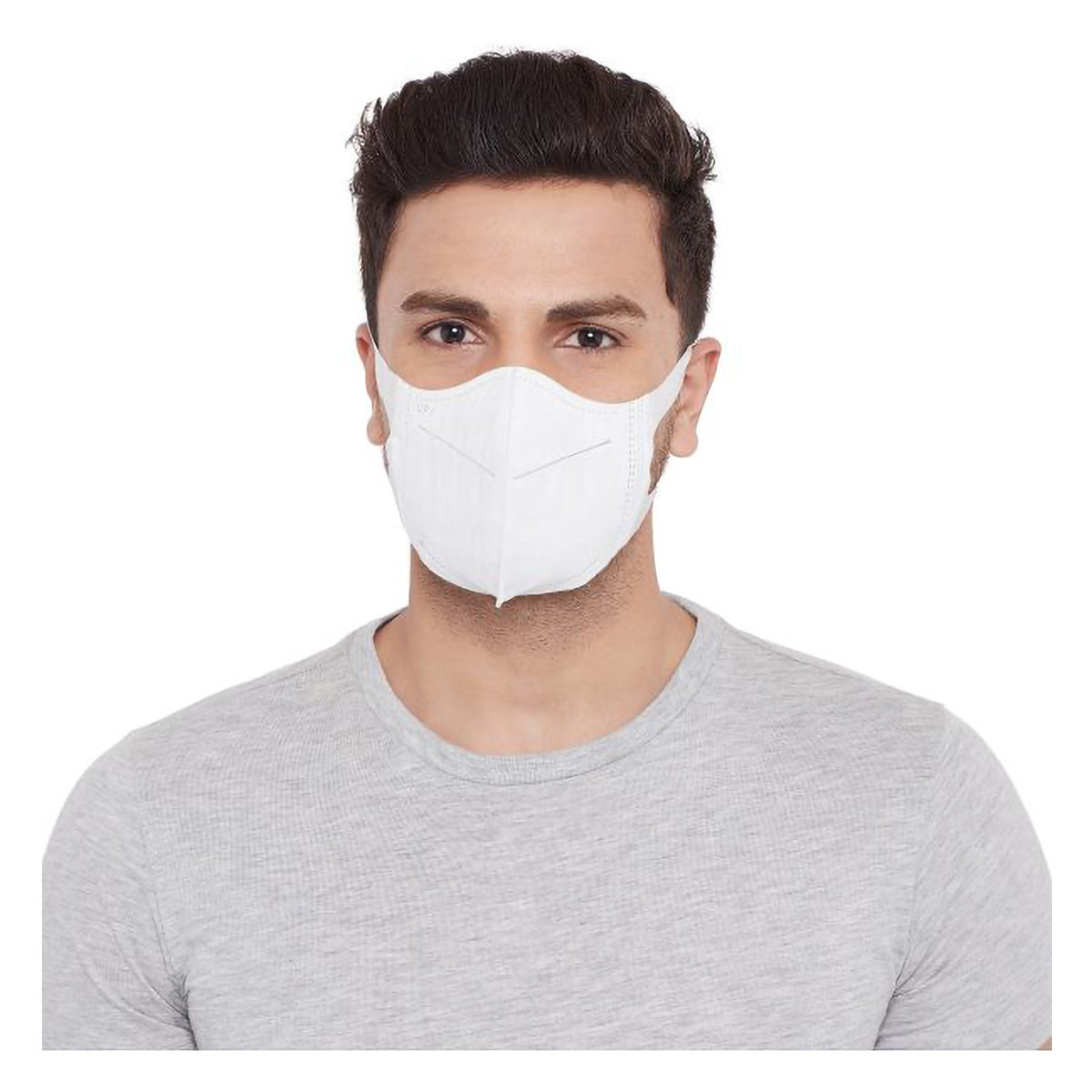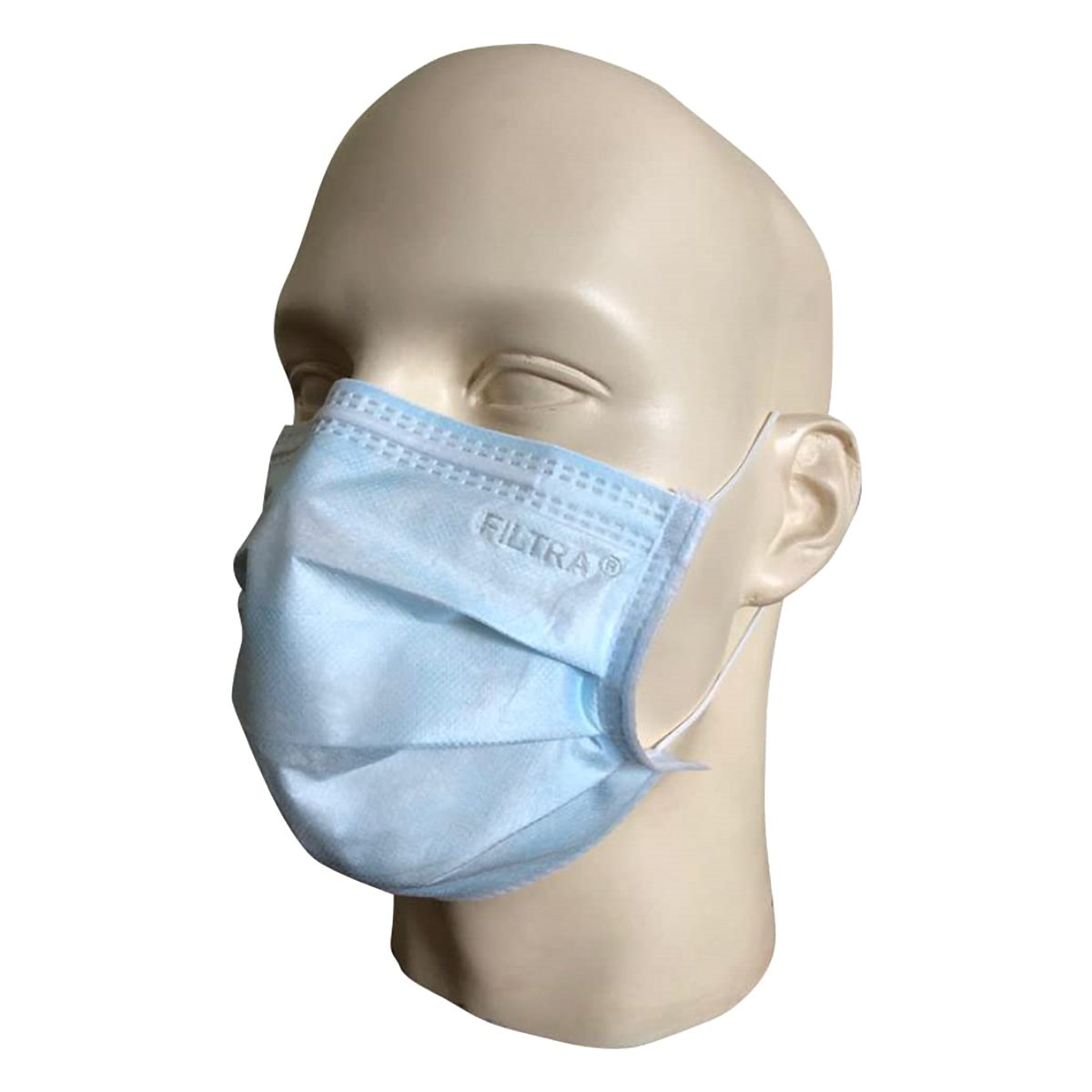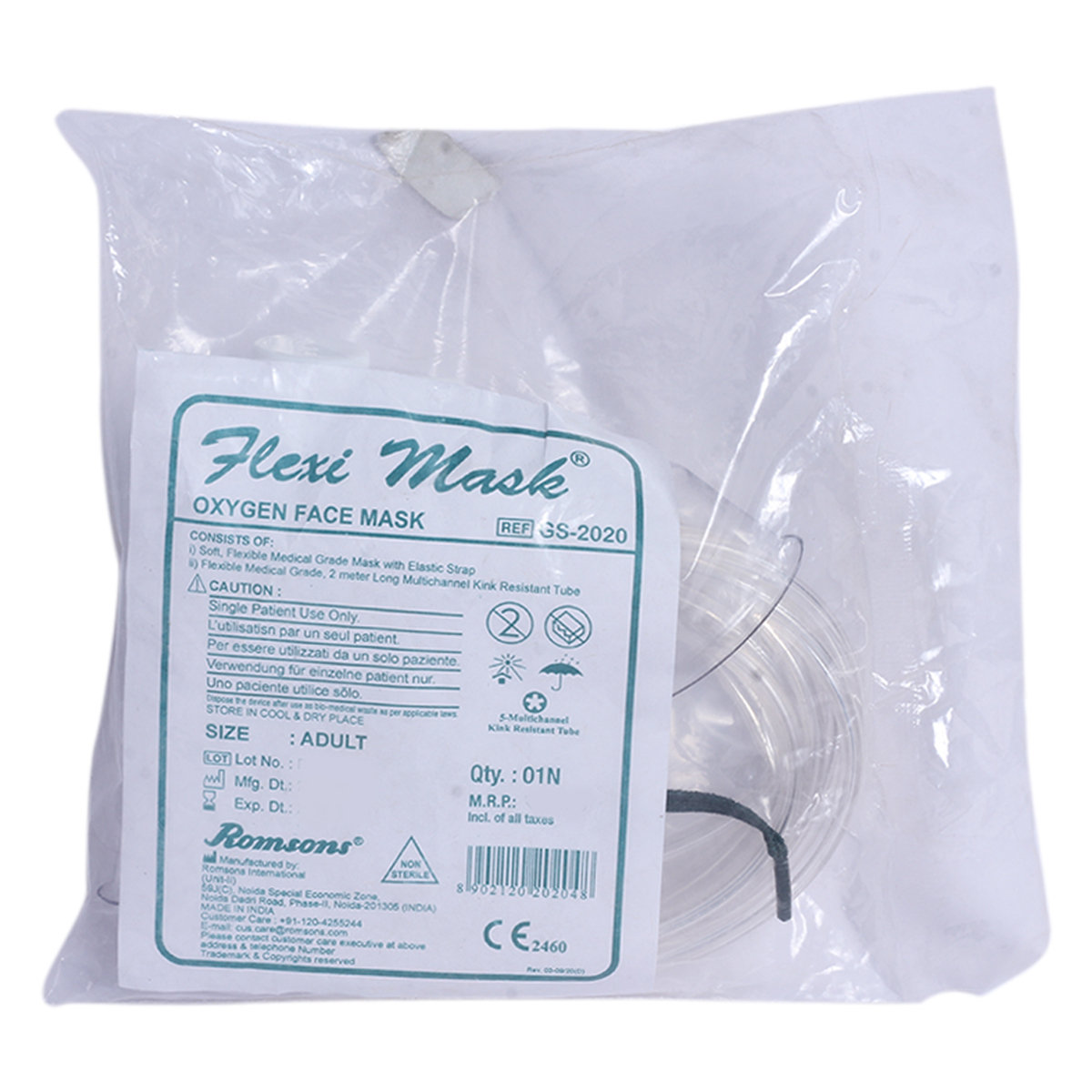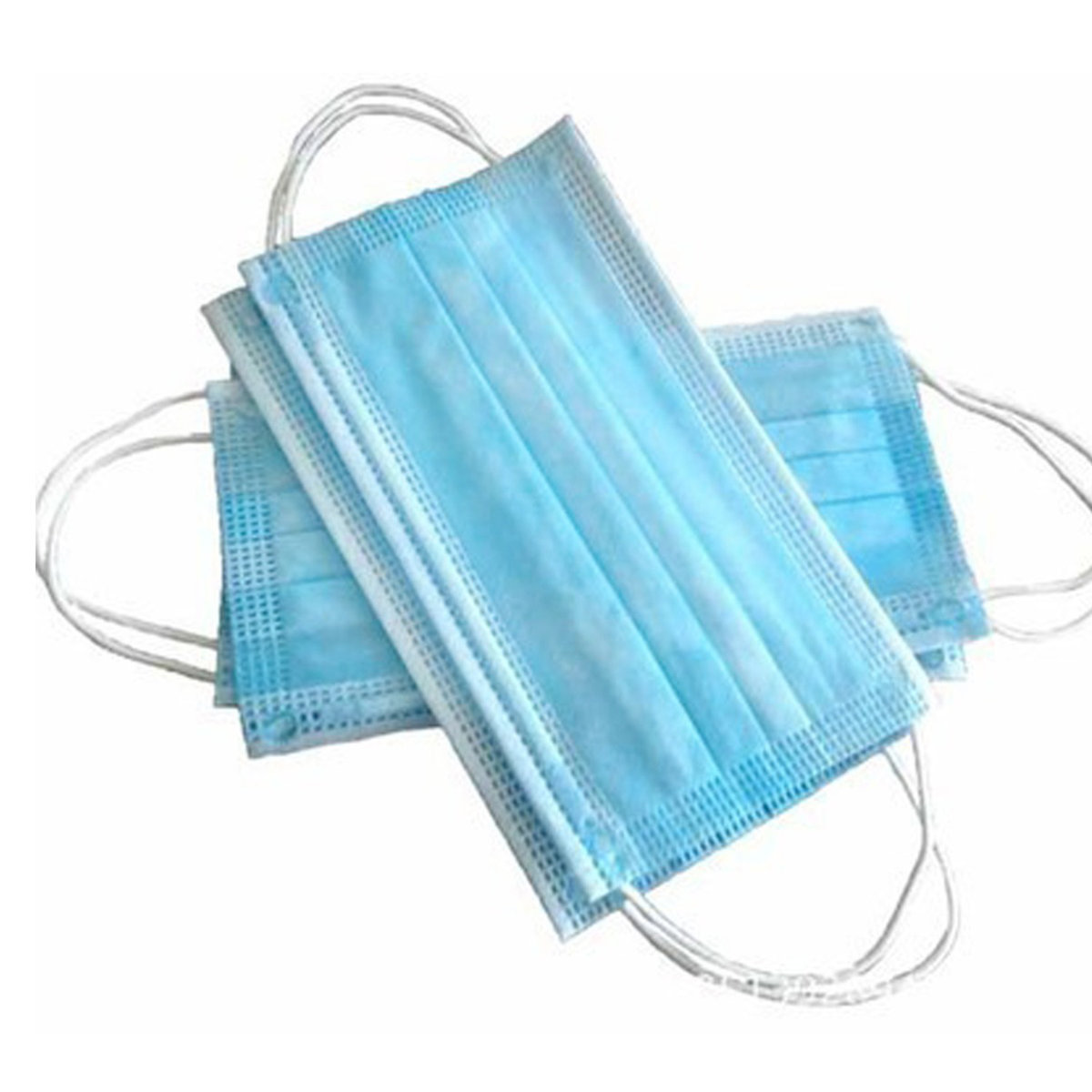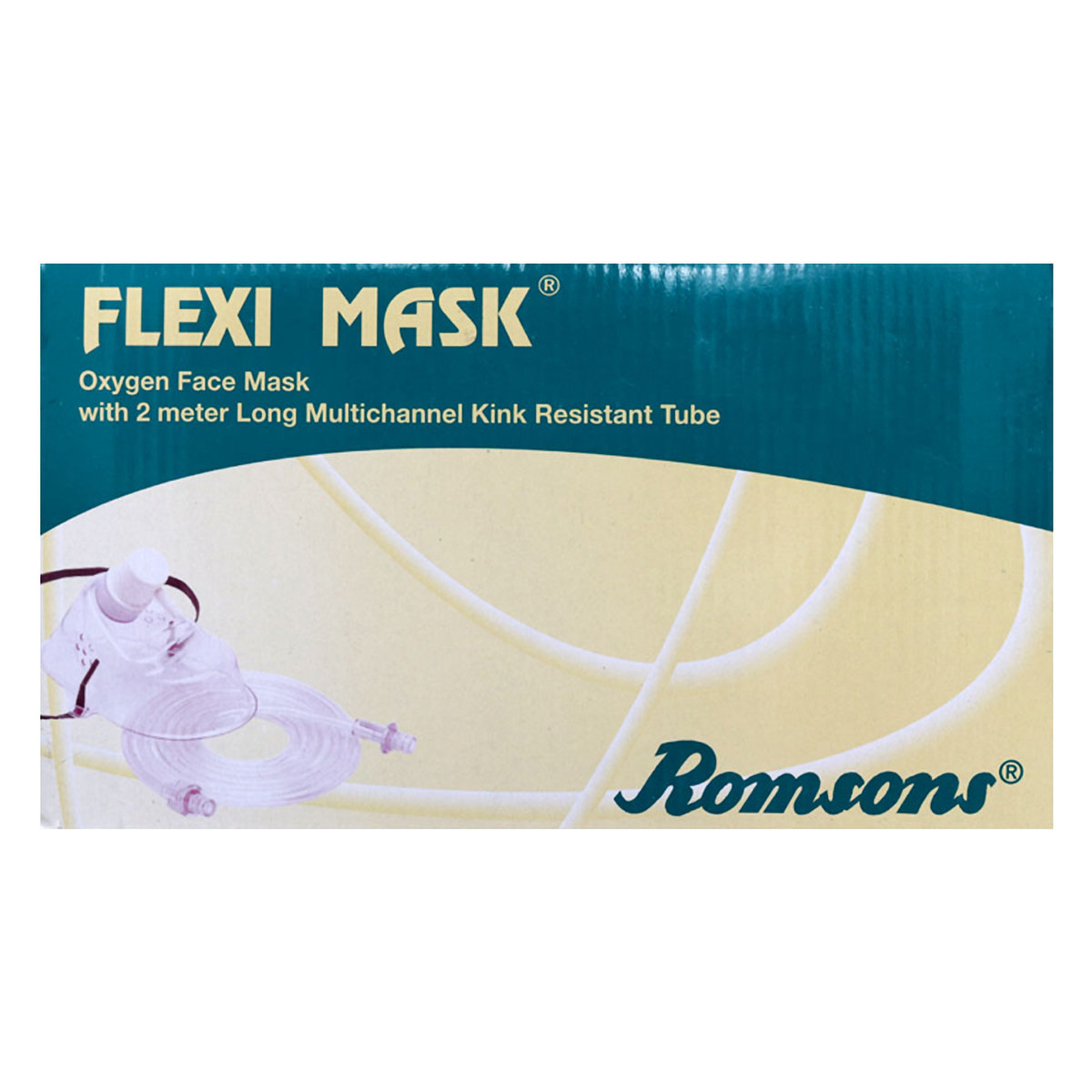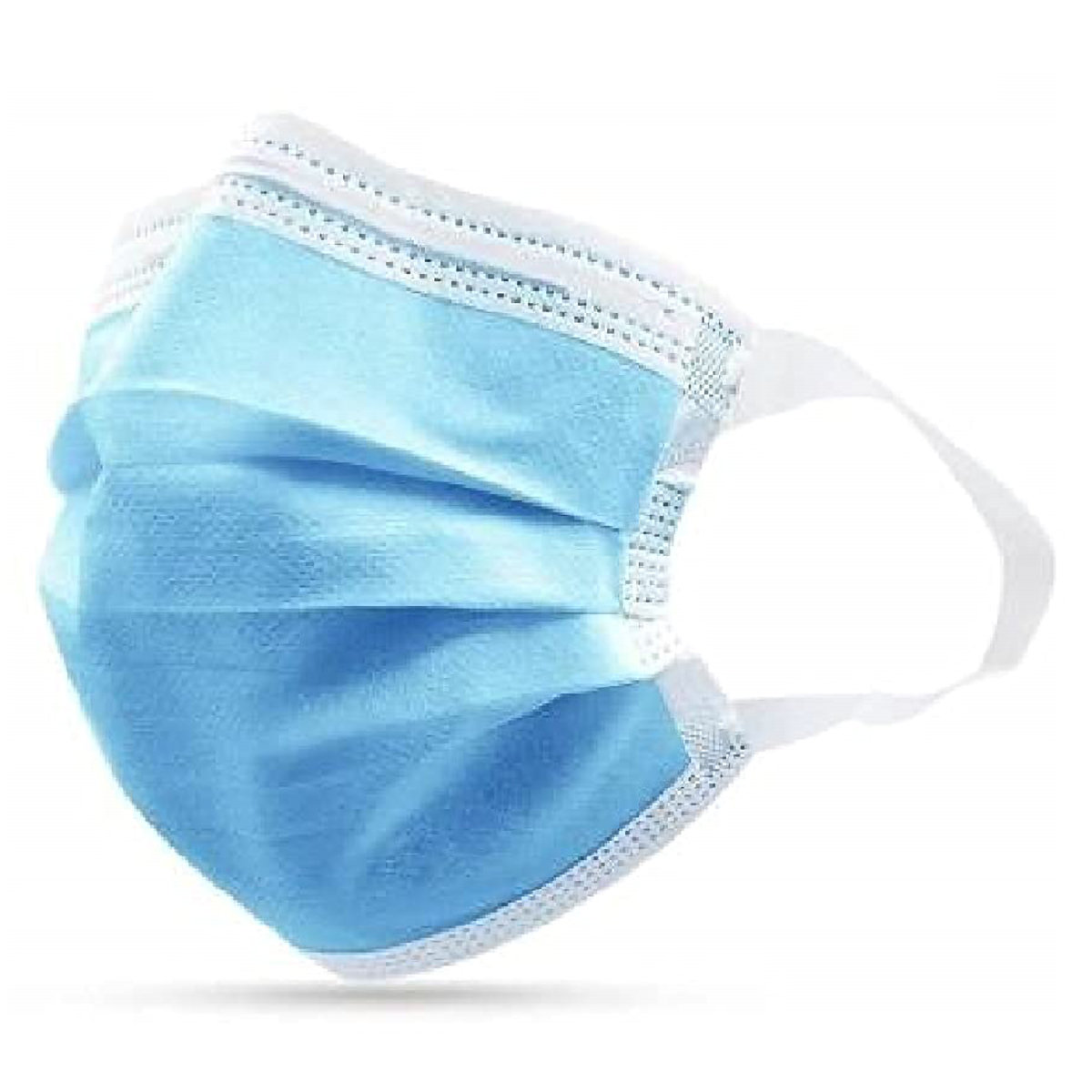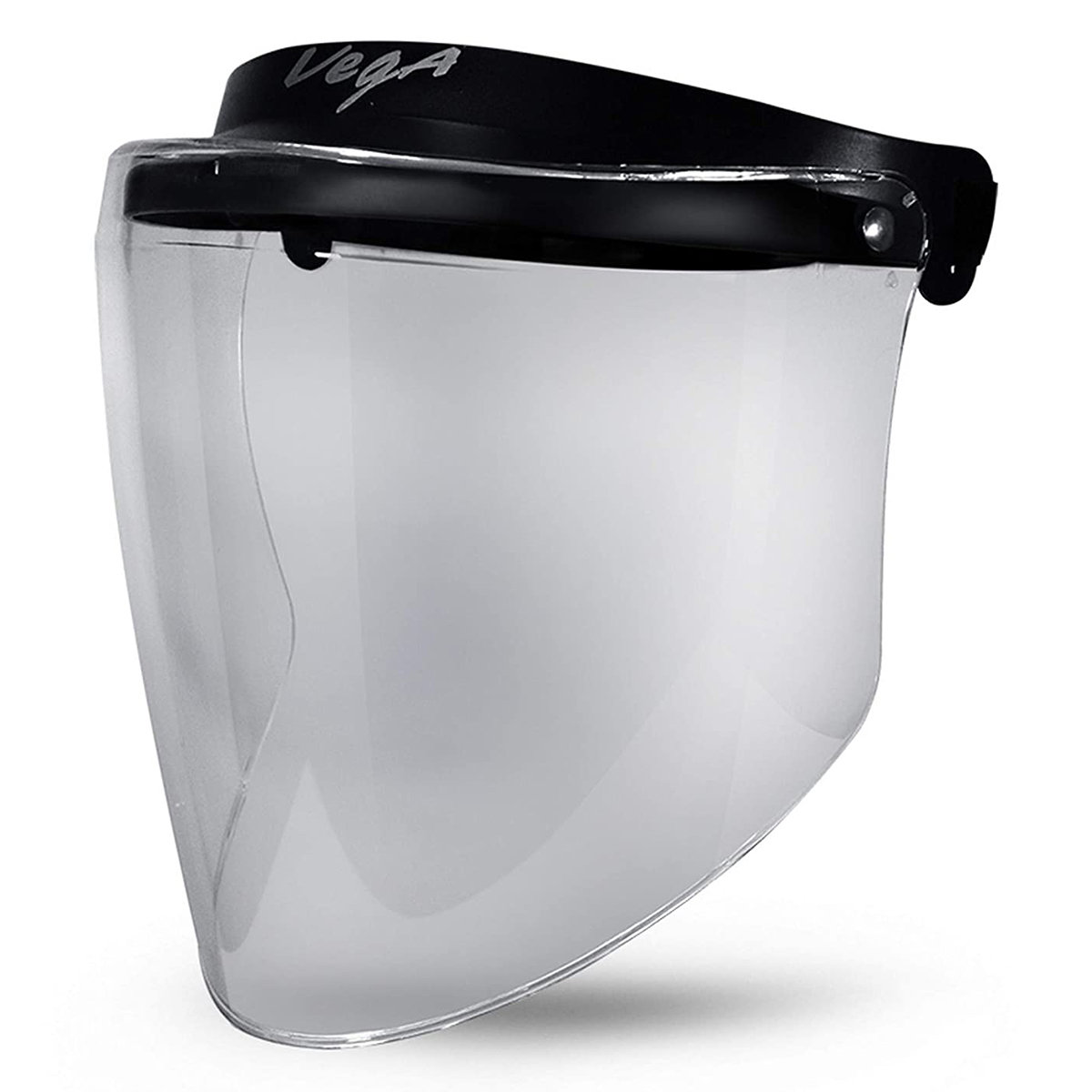- Home
- Health Devices
- Health Accessories
Face Mask
Face Mask
- Total Items (57)

Apollo Life 3 Ply Disposable Face Mask, 50 Count
₹360
MRP ₹400
10% off
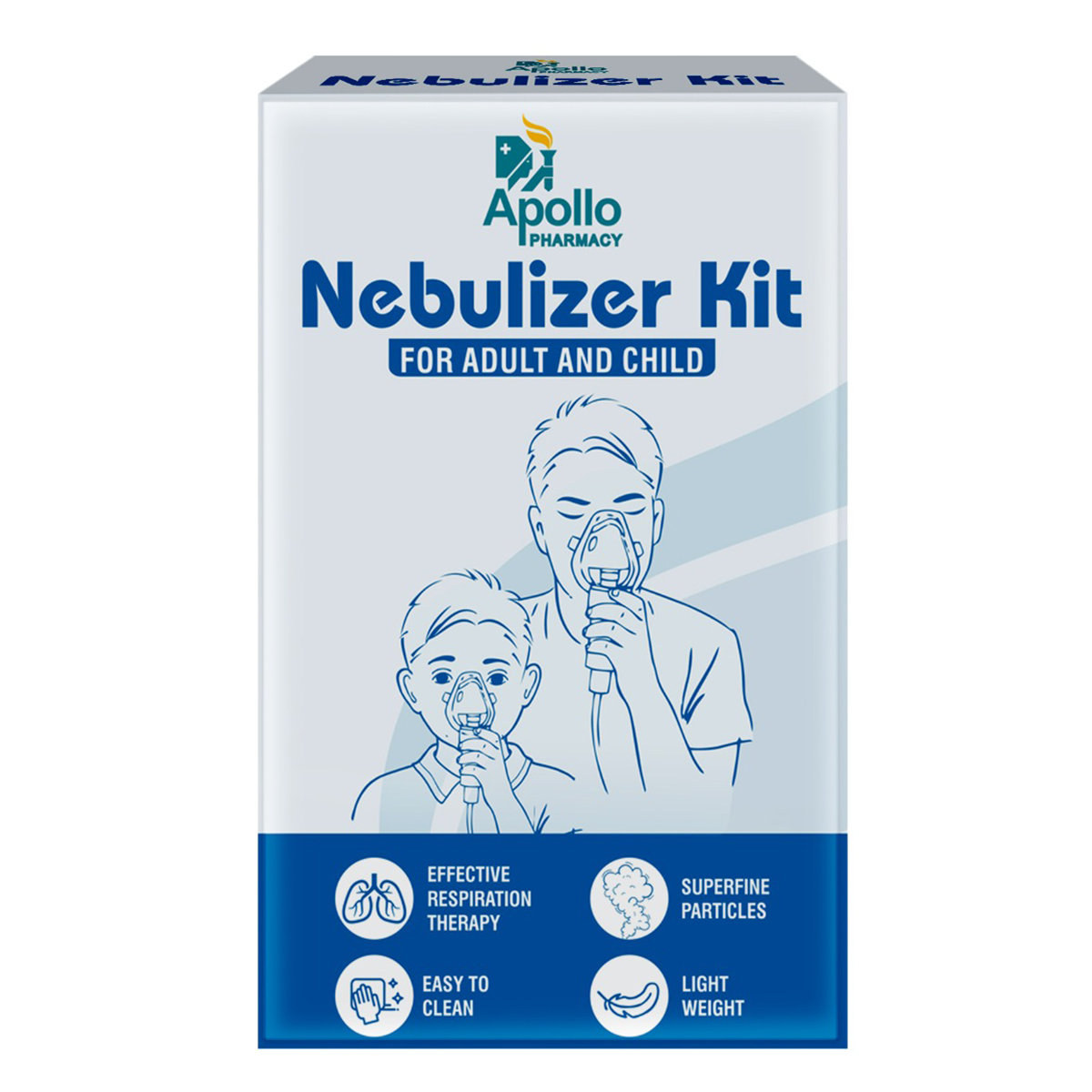
Apollo Pharmacy Nebulizer Kit for Adult & Child, 1 Count
₹336.60
MRP ₹374
10% off

Apollo Life Reusable 4ply Black Face Mask, 2 Count
₹180
MRP ₹200
10% off

Apollo Life Reusable 4Ply Oxford Blue Face Mask, 2 Count
₹180
MRP ₹200
10% off
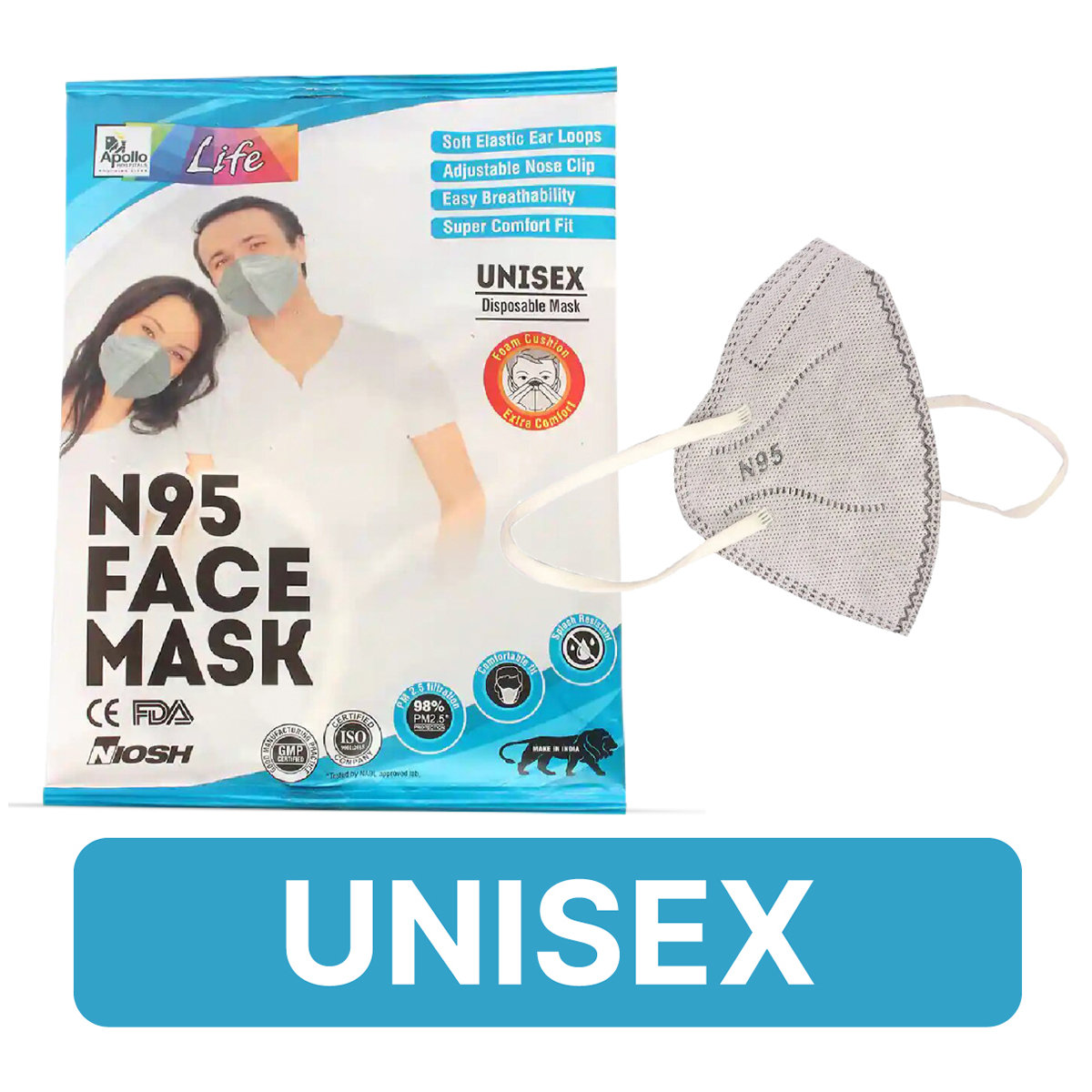
Apollo Life N95 Unisex Face Mask, 5 Count
₹225
MRP ₹250
10% off
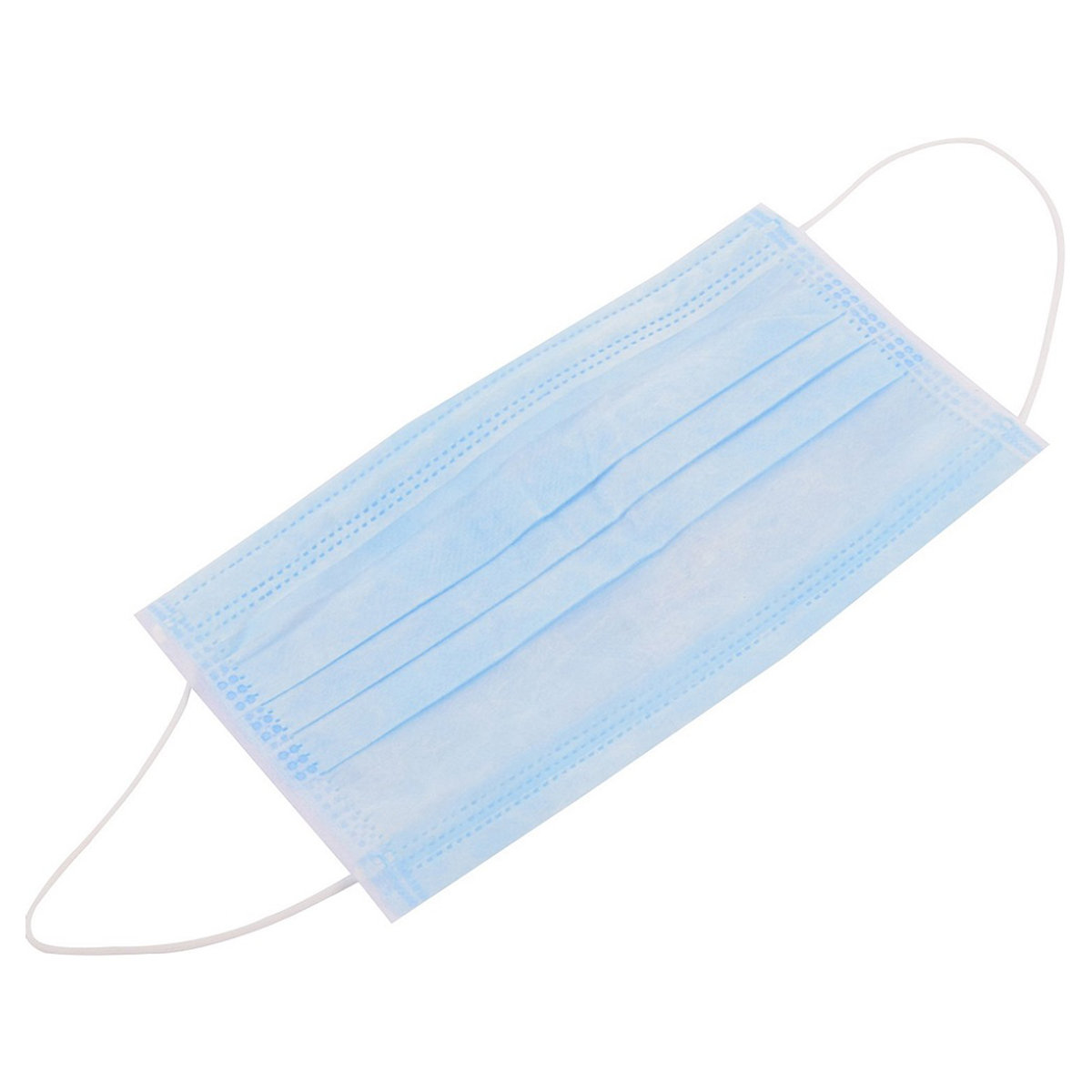
Romsons 3 Layer Face Mask,1 Count
₹10
Minimum Order Qty: 2
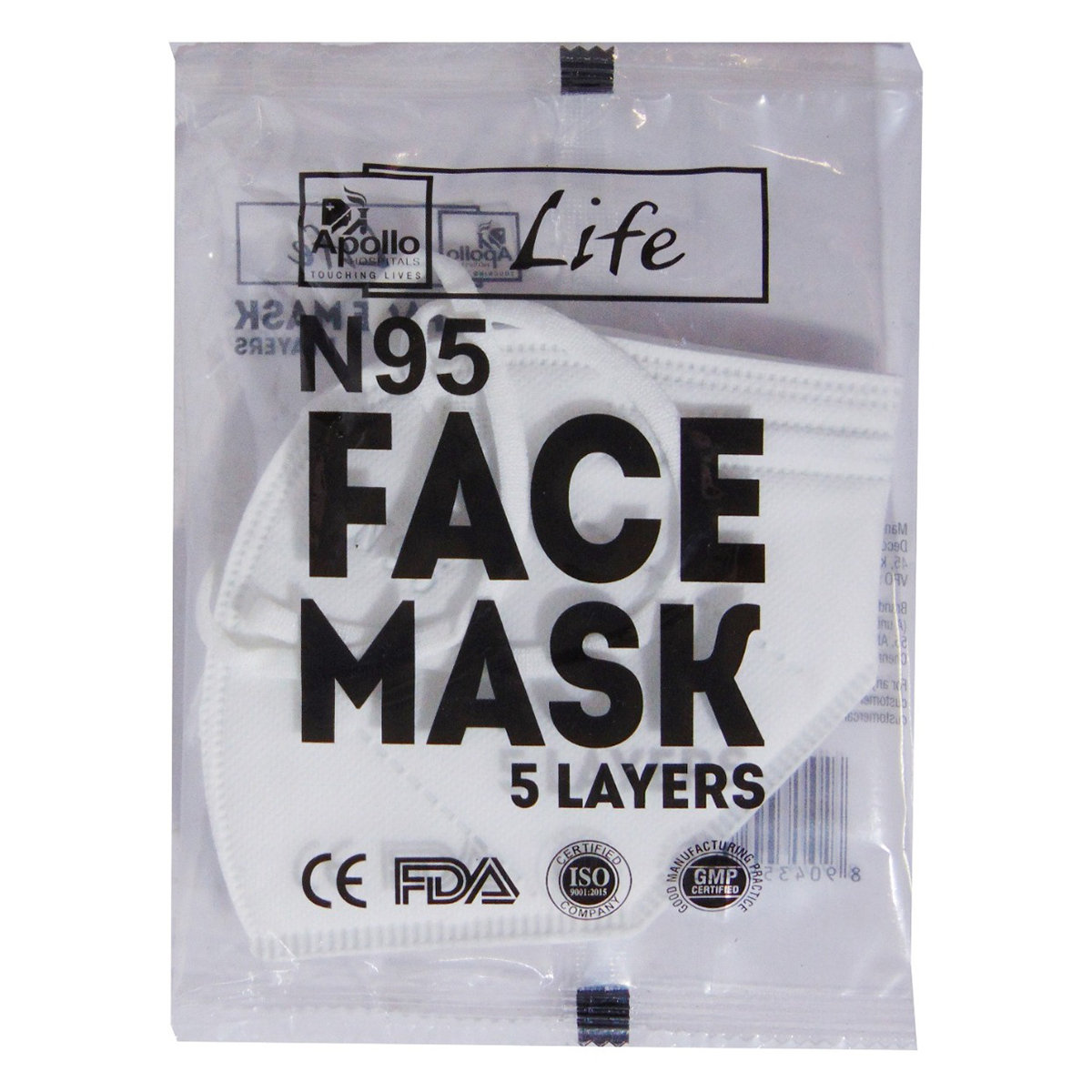
Apollo Life N95 5 Layers Face Mask, 4 Count
₹180
MRP ₹200
10% off

Vinjoh Oxygen Mask, 1 Count
₹421.50

Apollo Life Reusable 4ply Grey Face Mask, 2 Count
₹90
MRP ₹100
10% off
Get your face mask today from Apollo Pharmacy!
Apollo Pharmacy is India’s most trusted and reliable online pharmacy that delivers authentic products and medicines. Apollo Pharmacy provides superfast home delivery of healthcare essentials. Explore our wide range of authentic face masks online on Apollo Pharmacy and protect yourself from germs and pollutants.
What is a face mask?
A face mask is a protective cover for the face or part of the face that prevents you from inhaling hazardous substances, such as pollution or bacteria. Face masks are beneficial in protecting you from severe infections.
Several options are available online for face masks. N95 face masks are considered to be the best as they protect against viruses. They are commonly used by medical professionals working on the front line.
Some types of face masks to look for are as follows:
ASTM surgical masks are generally worn by nurses, doctors, and surgeons. A higher rating indicates higher protection from germs and bacteria. Buy ASTM surgical masks only if they are FDA approved.
FFP-2 and KN95 masks provide similar protection as N95 face masks. Ensure that you buy only FDA-approved ones, as this will help you protect yourself against germs and bacteria.
Face masks: Dos & Don’ts
DO wear a mask if you are:
In a contaminated or high-risk zone.
In public places to prevent the spread of viruses.
Inside an enclosed setting where it is unavoidable to maintain the distance.
Exercising close to other people.
Inside your home or around a family member affected by the virus.
DON’T wear a mask if...
You are alone at home.
You are somewhere you can easily maintain the distance.
The CDC refers to wearing a face mask in the following populations:
Children under two years of age.
People with physical disabilities.
Is it mandatory for children to wear face masks?
According to WHO, children may be less affected by harmful viruses but they can have a large number of contacts in public areas and schools. Further studies are in process to determine the risk of viral infection in children and to understand the transmission in this age group. It is recommended to wear face masks in a community setting where physical distancing is impossible.
Prevention is the key – keep yourself protected!
Wearing a face mask is the perfect way to protect yourself and the people around you from harmful bacteria and viruses. Other significant steps to minimize the spread of the virus include:
Following the quarantine guidelines, wherever possible.
Covering sneezes and coughs with an elbow.
Frequently disinfecting and cleaning your touched surfaces.
Types of face masks - get a grip!
Cloth face masks are made of common fabrics, usually cotton. Wear a cloth face mask with a nose wire, breathable fabric and appropriate fit.
Don’t wear a cloth face mask with:
Gaps inside the mask
Exhalation vents, valves or other visible openings
Thin fabric or single-layer fabric
Disposable face masks are available widely. They are also known as medical procedure masks or surgical masks.
Do wear a disposable face mask with:
Nose wire
Proper fit
Multiple layers (Non-woven material)
Don’t wear a disposable face mask with:
Opened gaps around the sides of nose or face
Dirty or wet material
How to wear face masks
It is significant to wear a face mask daily in a public place. The initial step is to choose a face-covering that fits your head. You can follow these tips:
Don’t touch your mask once you wear it.
Wash your hands daily and sanitize your hands whenever possible.
Don’t touch your eyes, nose or mouth while removing your face mask.
Wash your mask thoroughly and wear it only when it is dried.
Best practices for wearing face masks
Once you have decided which face mask to use and the type of material that works best for you, ensure that it fits correctly. The face masks must fit well to work best; the most effective ones are those that have a proper fit with no gaps. Masks that may have gaps could be 60% less effective than the rest. Ensure your mask covers the area above the nose and below the chin to get the best protection from viruses.
Frequently asked questions
No, there is no scientific proof that wearing a mask causes low oxygen levels. However, the tedious use of N95 face masks for respiratory diseases may cause some build-up of carbon dioxide in your body. You should discuss your concerns related to wearing face masks with healthcare professionals.
The N95 facemask is 95% protective against viruses and bacteria. These masks are mainly used by frontline workers at hospitals. The surgical masks are comparatively less effective.
Surgical masks and N95 face masks manage their filtration properties for four hours or more than that. You can change your face mask when the filtration part is wet and if you are unable to breathe.
Double masking may help protect oneself against the threat of more contagious bacteria or viruses. Maximizing the fit of medical and cloth masks is the key to improving performance and reducing transmission and exposure to viruses and other germs.
Yes. The correct way to wear a double mask is to wear it with a surgical mask first and then cover it with a cloth mask. Tightening a surgical mask is not a compulsory thing; however, if it doesn’t fit properly then knot the ear loops and tuck in the corner to enhance its filtering efficiency.
One effective step towards preventing the viruses from spreading is wearing a face mask. It can be practised with the following:
Frequent hand washing & sanitizing
Maintaining a social distance of at least one metre
Staying home if unwell















